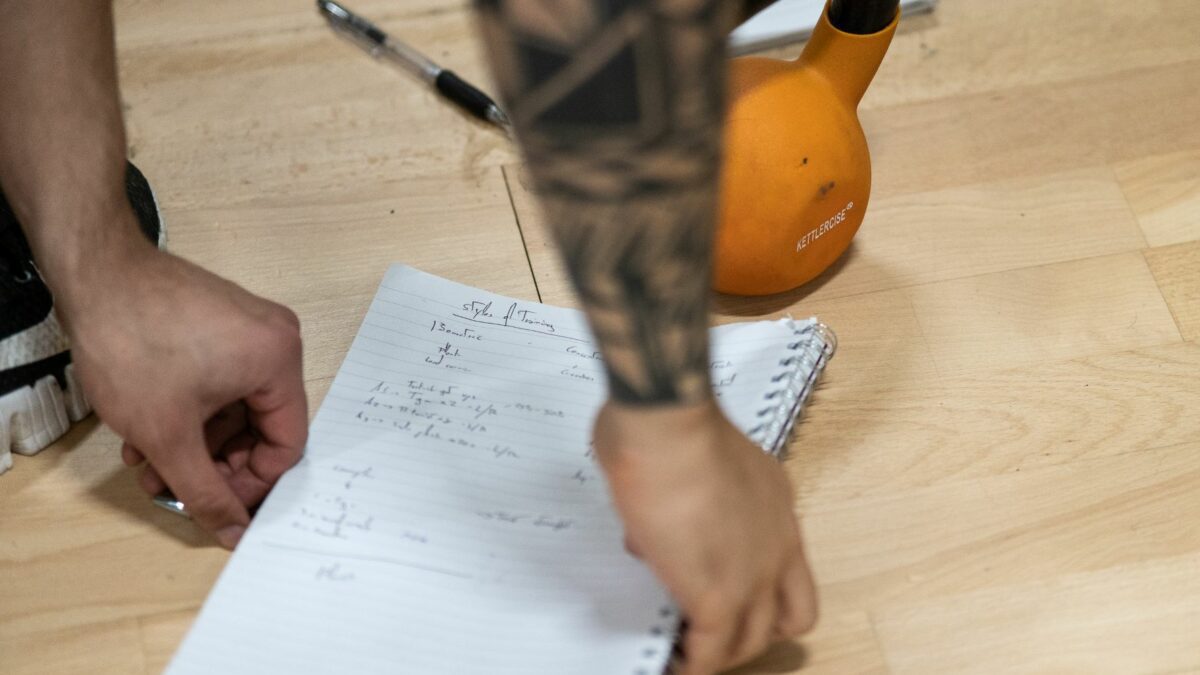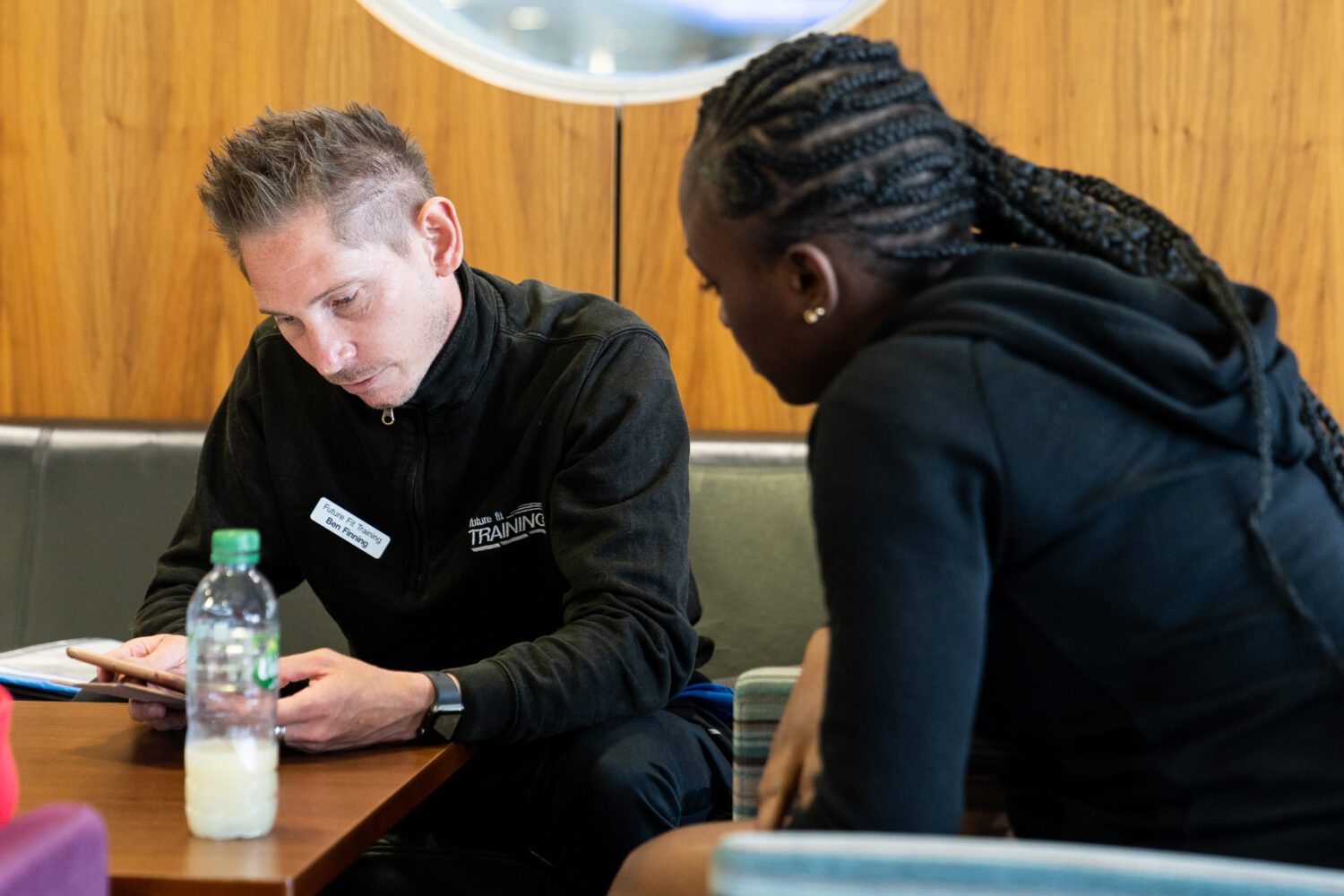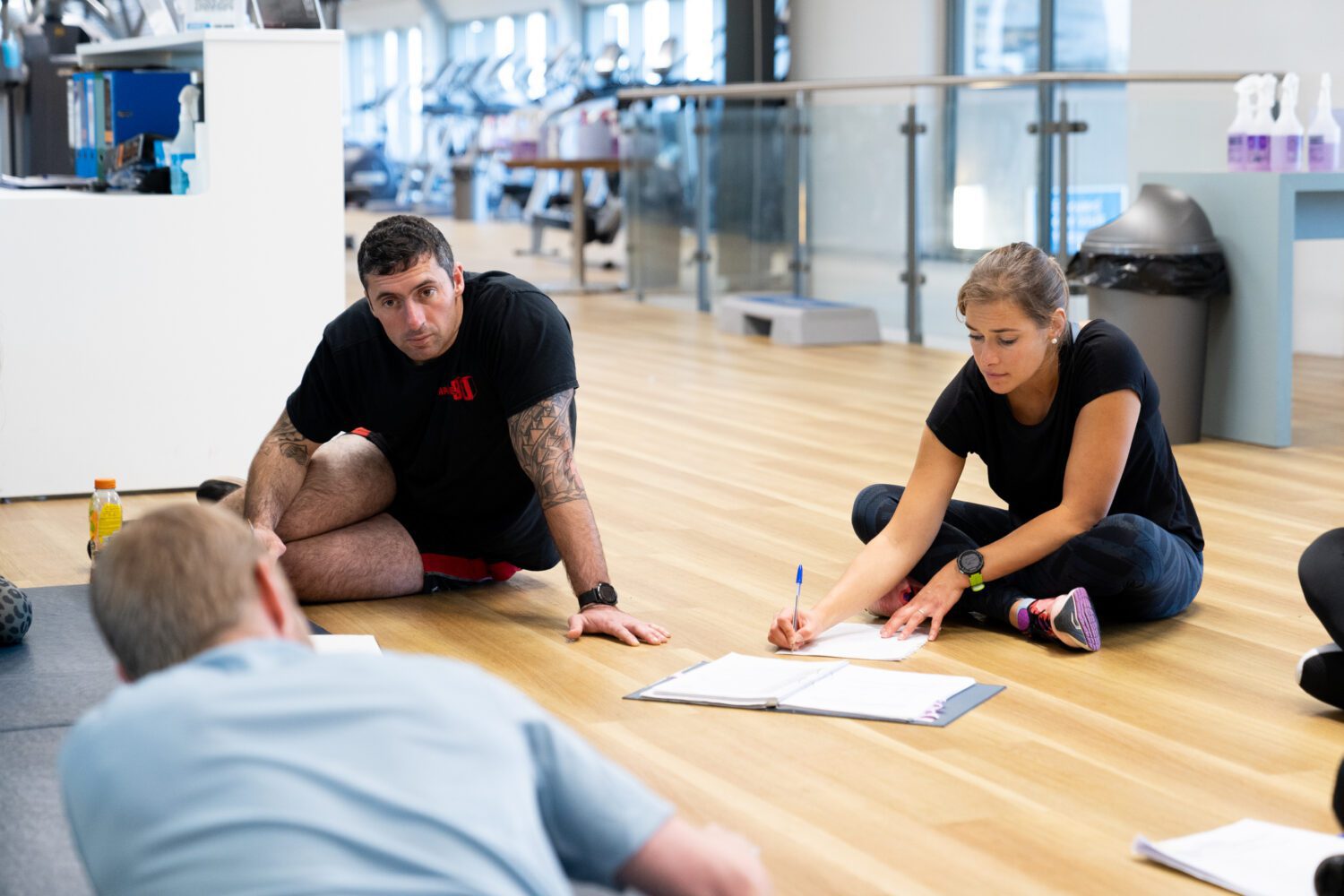



One of the main things to understand about your client is what is motivating them to train, this can be a question you ask each session or once a month to stay on top of your client’s needs and get to know the reason type behind their training. Checking in regularly will ensure that you are working towards the same training goals as your clients in every session, it may be that their goals have changed or adapted.
This is a good question to work into each training session, understanding how your client found that particular workout is important for future sessions. Communicating on this level after each session will help ensure your client is working their hardest to achieve their goals, in order to motivate your client’s sessions shouldn’t necessarily be easy. This will make it easier for you to figure out what is a good challenge for your client and what may be pushing them further than they feel comfortable, allowing you to adapt for the next session.
Understanding the type of training your clients enjoys will improve client satisfaction for your personal training services. Once you have a good idea of the workouts your client is responding well to or alternatively the ones they aren’t finding enjoyable, you will be able to personalise their personal training sessions to them. Ask them what their favourite type of training is then incorporate this into their next training session.

As a personal trainer, it is important to understand the current nutritional lifestyle of your clients, they may be attending 3-4 sessions a week and seeing little improvement. In this instance, it could reflect badly on your certification if they don’t feel their fitness journey is progressing. Having an understanding of their nutrition alongside their training programme you will have a deep understanding of where changes may be needed. You could then use this information to provide additional nutritional advice such as the best pre and post-workout snacks, this will provide them with new knowledge they can incorporate into their fitness lifestyle.
It is important that as a personal trainer you regularly take on client feedback on how they are finding your training services. In order to be a successful personal trainer, you need to learn areas of weakness or room for improvement to work on yourself. The best people to give you this advice are your own clients, these people are your customers who have valuable insights to guide you to further success in the personal trainer’s industry.
This is a good question to work into a personal training session with your client as a check-in stage, find out what changes they have seen from your work. This question opens opportunities to identify areas to be worked on as well as what has been successful. Talking about this with your client will also demonstrate interest from you in their fitness journey and show you are invested in finding out the impacts of your fitness training.

When taking on a new client it’s good to ensure you have a clear understanding of what their main fitness goals are. Ultimately they are paying you to help them reach these goals, if you can’t map out the progression to get to that stage you will struggle to retain clients. A good way to help your client set fitness goals is by asking for their short term fitness goals alongside their long term. Setting fitness goals at the start of your personal trainer-client relationship will be them in place as something which can be check-in on throughout the fitness journey.
Starting a fitness journey can be completely different across numerous clients, you will have those who already take part in fitness, those who have no idea where to start as well as those just looking to tone up or increase strength. Every client will have different reasons for wanting to invest in their fitness journey, as their personal trainer you must be aware of what has motivated them in the first place. This insight contributes to understanding behaviour change for that client allowing you to successfully apply it to your work.

Strengths and weaknesses are useful to understand for both yourself and your client, at this stage they can identify their current weakness which can be used as an opportunity to work on and improve with them. Similarly understanding their strengths will help you when incorporating both the strengths with the weaknesses throughout different training sessions. Once the client has explained their strengths and weaknesses this can be used to refer back to in check-in sessions to see how they are progressing.
Although this may seem to have little association with what you need to know about your clients, knowing what they do for a living will explain how active they are in their daily life. This is a contributing factor to working towards their goals, for example, somebody who works at a 9-5 desk job will have to push harder to hit step goals alongside training. On the other hand, individuals who work in hands-on jobs which involve movement throughout the day wouldn’t have to push as hard outside of sessions.
This is also a good question to include when meeting with new clients as it demonstrates an interest in their current life situation, creating a good relationship with your clients is vital to maintaining client retention.
The amount of sleep your personal training clients are getting can impact how they are performing in each session as well as the progression they are seeing in their fitness journey. Statistics have shown that those who have their full 8 hours sleep the night prior to the next day, naturally have more energy in everyday life and activities, therefore clients who are getting enough sleep generally would perform better than those who have not. Sleep can also benefit muscular growth and recovery which are important aspects of your client’s fitness success.
In conclusion, asking the right check-in questions for your current personal training clients will be beneficial to both yourself and your client by identifying strengths and weaknesses in the current routine. Questions that are asked when taking on new personal training clients will help you determine the goals and responses you are looking for in your check-in questions, the combination of these will ensure you help your client reach their end goal. Keeping on top of client check in’s and demonstrating a genuine interest in their opinion will help client retention and client satisfaction, this will impact your overall reputation as a personal trainer to help build your fitness business.